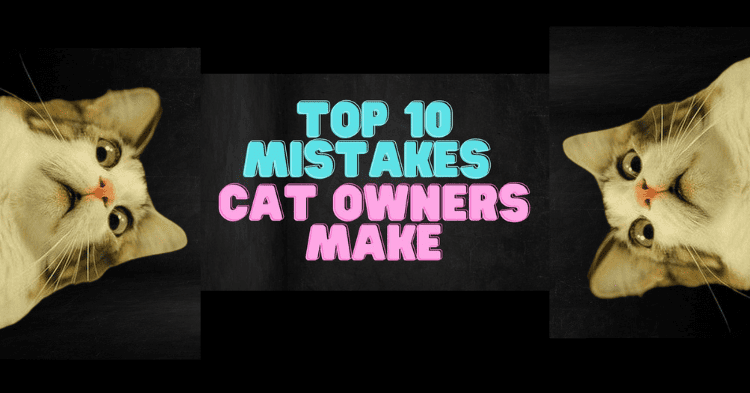1. Putting your cat in stressful situations
Like us humans, cats experience anxiety, fear and stress-related disease. Cats are solitary animals and do not like to be surrounded by other cats. Don’t overpopulate your house with cats! And if you do have multiple cats, make sure you have elevated places/runs, hiding places and modifications around the home so cats can avoid each other. Speak to your vet about medications and techniques to minimise transport and vet visit anxiety and look after your cat’s mental health too! Do not use a ‘bubble backpack’ or any other transparent pet carrier, especially one on wheels. Speak to a Fear Free certified Professional or Practice and get some great tips at fearfreepets.com
2. Not doing your research
Online and pet shop kittens are oh so cute but do you know their history? Are they from a reputable breeder who is breeding with healthy cats who are vaccinated and do not have inherited diseases? Have they been imported illegally? Making an impulse purchase can lead to a fur baby who suffers from a lifetime of disease due to brachycephalic (short-faced) syndrome, cat flu or gut health issues. These can be debilitating, heart-breaking and expensive. Choose a cat who suits your location and lifestyle. A long-haired moggy is no good if you do not have the time for daily grooming.
3. Waiting too long to spey and neuter
We ADORE cats! But the fact is, there is just not enough homes for all our fur friends. Be responsible and neuter your cat! The risk of cancer is much higher in un-neutered females and entire male cats will start spraying urine around the house in places you would never expect. Plus your beloved kitty is more likely to escape or fight if left unneutered as he/she goes looking for a bit of romance. Studies show that young, male cats are particularly at risk for road traffic accidents.
4. Not providing enough litter trays for cats.
Always have one more litter tray than the number of cats in your house. Cats are fastidiously clean and prefer a CLEAN litter tray in a QUIET place. Most cats do not like to share. A cat who does not pee can develop life-threatening urinary tract disease. Contact your vet IMMEDIATELY if your cat is having difficulties with their toilet activities.
5. Overfeeding your cat.
This increases the risk of obesity, disease, arthritis and gastrointestinal problems. Check the food label and stick to it! Ask your vet about weight-loss diets.
6. Missing signs of pain OUCH!
An older cat who starts losing muscle mass, stops grooming or jumping up to a height or hesitating before going up or down stairs is likely suffering from osteoarthritis (joint disease). Did you know 90% of cats over 12 years old show evidence of joint disease on radiographs?
Arthritis is PAINFUL and your cat needs YOUR help. It is not just ‘getting old or slowing down’. There are multi-modal ways to manage pain and so many modern medications and therapies available including acupuncture and laser therapy. Giving a joint supplement may or may not help and should not be used as a sole therapy for moderate – severe arthritis as the analgesic qualities are just not high enough. Supplements should be combined with a prescription medicine to get the best result.
7. Missing annual health checks.
Many diseases such as kidney disease, hypertension (high blood pressure), arthritis and some cancers can be detected at an early stage with a simple health and wellness check. This means we can intervene before the disease progresses past the point of intervention.
8. Ignoring dental hygiene.
Brushing your cat’s teeth every day removes the plaque which causes poor dental health. Dental disease not only affects the mouth but it is PAINFUL and affects the systemic health of the body. If you cannot brush, then try an oral gel or prescription diet specifically made to benefit oral health. If none of these are possible, a dental scale and polish under general anaesthetic every few years should go a long way in keeping the oral cavity healthy and happy.
9. Ignoring flea, worm and vaccinations.
Parasites can lead to ill-thrift, weight loss, anemia and fleas can also transmit other diseases. Vaccinations protect against life threatening diseases such as feline parvovirus. Don’t take short cuts with preventative health care.
10. Deciding against pet insurance.
Too often pet parents wait until after their fur baby is sick or injured to think about insurance. Too late! There are waiting periods and exclusions on pre-existing disease.
Nowadays, veterinary care is highly advanced with many options available including specialist and round-the-clock care. But it IS expensive so protect yourself for unforeseen costs early and have peace of mind that you can do the best for your pet should you have the unfortunate need for this.

